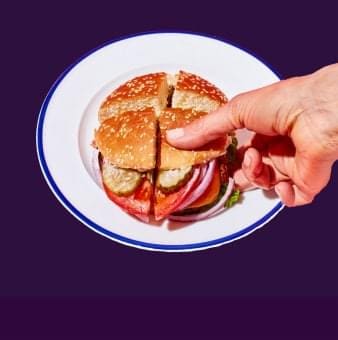A New Study Co-Authored by Naturally Slim Chief Medical Officer Explores Why Exercise May Not Produce Weight Loss
Dallas, TX—July 10, 2019—A new study, published in The American Journal of Clinical Nutrition, found that for most people, exercise does not lead to substantial weight loss, and for some, it can even lead to weight gain. But it doesn’t have to—not if you know your post-workout tendencies and what progress-stalling behaviors to avoid.
Many people are under the impression that because they exercise, they can get away with eating more. They think, “I worked out, so I can have a little extra food, and it’ll be fine—I’ll still lose weight.” According to the study, many people are eating more “extra” calories than they realize. These individuals are either not losing as much weight as they expect, or they’re gaining weight.
The study was led by two obesity research pioneers:
- Timothy Church, MD, MPH, PhD, Adjunct Professor at Pennington Biomedical Research Center, and Naturally Slim Chief Medical and Strategy Officer
- Corby Martin, PhD, Director of the Ingestive Behavior, Weight Management, and Health Promotion Laboratory at Pennington Biomedical Research Center, and the E-MECHANIC study’s first author
“What we’ve confirmed in this study is that when people choose to eat more because they’ve exercised, they lose less weight than expected,” said Dr. Church. “To make exercise an effective tool in their overall weight loss strategy, people need to continue listening to their bodies and eat when they’re truly hungry. Using exercise as a justification to have an extra “treat” is only going to slow their weight loss.”
On average, those that did “treat themselves” after exercising ate an extra 90 to 120 calories per day, which is only about four to five additional bites of food.
“It’s a small difference that has a big impact when you’re trying to lose weight,” says Dr. Martin. “At the beginning of the study, we asked participants if they thought it was okay to engage in unhealthier behaviors because they engage in healthier behaviors as well. The participants who said yes tended to be the participants who ate more and therefore, lost the least weight. We also found that regardless of whether participants engaged in these compensatory behaviors, their resting metabolic rates mostly stayed the same. And that’s great because it means participants are less likely to regain any weight they did lose.”
The study, co-authored by Dr. Church, Dr. Martin, and a team of other leading obesity researchers (listed below), is especially significant because it’s the largest study to directly measure the number of calories eaten by participants as opposed to relying on what participants self-report, making it extremely accurate.
“With Dr. Church’s extensive and ongoing experience in obesity research, we are able to continually update the Naturally Slim curriculum with the most current clinical science. This puts us in a unique position compared to other programs offered in the corporate health space which are based on a curriculum developed more than twenty years ago,” said Kendall Ramirez, Naturally Slim Chief Experience Officer.
“People tend to blame themselves, such as saying their metabolism doesn’t work or that exercise causes their weight gain. We are excited that this research helps illustrate that some small, modifiable behaviors around food, just like what we teach in the Naturally Slim program, can impact your weight loss associated with exercise,” said Robin Patton, LMSW and Naturally Slim Director of Clinical Outreach.
The study has already gained a lot of traction, including a writeup in The New York Times. As time goes on, the Naturally Slim team predicts the study’s findings will continue to gain momentum and impact the lives of many people looking to lose weight and improve their health.
In the meantime, how can individuals who want to lose weight use exercise to their advantage?
“If your goal is to lose weight, know who you are. Know whether you eat less, a little more, or a lot more in response to exercise training. Weight loss starts with what you eat. So, if you tend to eat a lot more after exercise, find ways to rework your diet so that you eat fewer total calories,” said Dr. Church. “Regular exercise has many health benefits, and it’ll help you keep the weight you do lose off. So, don’t throw in the towel on establishing a regular exercise routine. Simply know your tendencies and create your weight loss strategy accordingly.”
To read the full study, click HERE.
To read The New York Times article, click HERE.
A Summary of the Study’s Design
Researchers out of the Pennington Biomedical Research Center and other institutions monitored the physical activity, energy intake, resting metabolic rate, and behavior of 171 overweight men and women aged 18 to 65.
At the start of the study, researchers recorded each participant’s individual weight, resting metabolic rate, aerobic fitness, and hunger pattern. They also asked participants whether they felt engaging in healthy behaviors justified engaging in unhealthier ones. Then, participants were randomly assigned to one of three exercise groups: a control group, a some-exercise group, and a most-exercise group.
The control group made no adjustments to their exercise regimen while the some-exercise and most-exercise groups took part in supervised aerobic exercise on treadmills or exercise bikes. The some-exercise group exercised three times each week until they burned eight calories per kilogram of body weight, or approximately 700 calories each week. The most-exercise group also exercised three times each week; however, they burned 20 calories per kilogram of body weight, or approximately 1,760 calories each week. Participants were not asked to make any behavior or dietary changes.
Researchers used state-of-the-art obesity research equipment to accurately track each participant’s food consumption, energy expenditure, and resting metabolic rate over the course of 24 weeks. Participants also self-reported their appetite and post-exercise behaviors.
The study’s authors include:
- Tim Church of Naturally Slim and Pennington Biomedical Research Center
- Corby K. Martin, William D. Johnson, Candice A Myers, John W. Apolzan, Jennifer C. Rood, Neil M. Johannsen, Catrine Tudor-Locke, Melissa Harris, and Daniel S. Hsia of Pennington Biomedical Research Center
- Conrad P. Earnest of Texas A&M University
- Diana M. Thomas of the United States Military Academy
About Naturally Slim
Naturally Slim is the leading digital behavioral counseling program focused on metabolic syndrome (MetS) reversal, diabetes prevention, and weight management in employee and health plan populations. The program has helped hundreds of thousands of people learn the skills they need to lose weight and maintain that weight loss long term. With Naturally Slim, participants don’t have to commit to restrictive diets or counting calories or points. Designed and administered by experienced medical professionals and based on the most effective clinical weight loss programs, more than 50 percent of participants with metabolic syndrome reverse their condition, which reduces their risk of diabetes, heart disease and many other chronic diseases. To learn more, visit www.naturallyslim.com.
Disclaimer: On May 13 2021, Naturally Slim rebranded to Wondr Health. At the time of this release, the company name was Naturally Slim.







